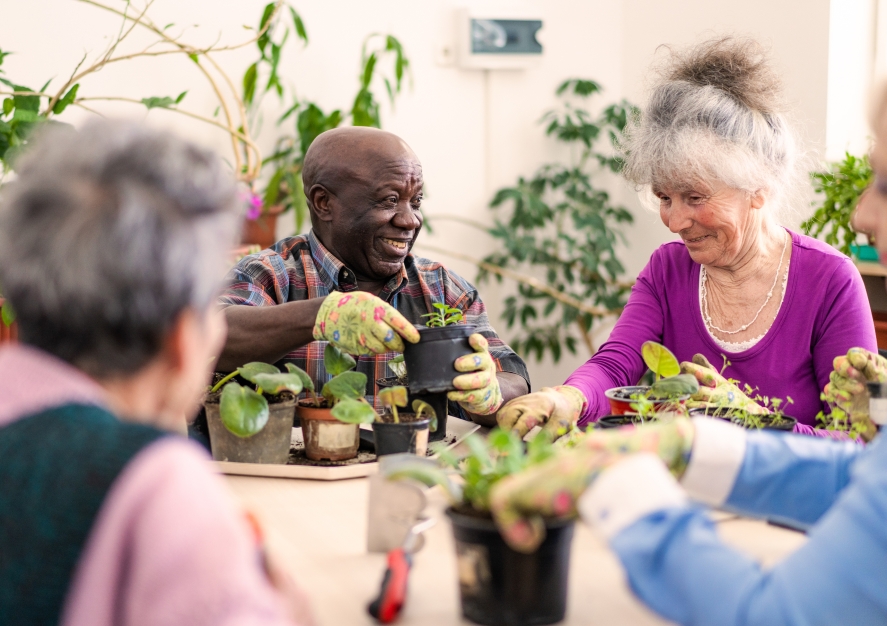The Senior Care Spectrum
In addition to senior living lifestyles like independent and assisted living, memory care and skilled nursing, home care, respite care and hospice may better meet your family’s needs.

Home Care vs Home Health?
As the name suggests, home care is care provided in the home. There are two types of care to consider, and the distinctions are important, especially when it comes to cost.
- Home Health Care – Provides professional medical assistance like skilled nursing care and rehabilitation services. Home Health is often prescribed when more care is needed after hospitalization.
- Home Care – Offers nonclinical services. There are two service levels, ADL (Activities of Daily Living) and IADL (Instrumental Activities of Daily Living). ADL, as offered by most home care agencies, includes help with bathing, dressing and grooming. IADL can also include transportation and errands, light housekeeping and laundry, and meal planning and preparation. Some agencies also provide medication reminders.
Home Care FAQs
What is Respite Care?
Respite care is short-term or temporary care. Respite care can be provided in adult day centers, in private homes via home health agencies and in senior living communities, most often assisted living or skilled nursing facilities.
Many communities offer half-day, full-day, overnight or extended respite stays in furnished rooms. Not only are all meals provided, but respite residents will also have access to a wider range of activities and amenities, and they’ll have a caregiver close by 24/7.
Respite Care FAQs
Why Respite Care?
What is Hospice Care?
Hospice care is specialized end-of-life care. When a terminally ill patient forgoes curative treatment, an interdisciplinary team of hospice professionals step in to provide medical, spiritual and psychological support in the shared goal of providing comfortable, dignified care throughout the end-of-life journey. Symptoms are treated to ensure comfort, but care is not curative.

